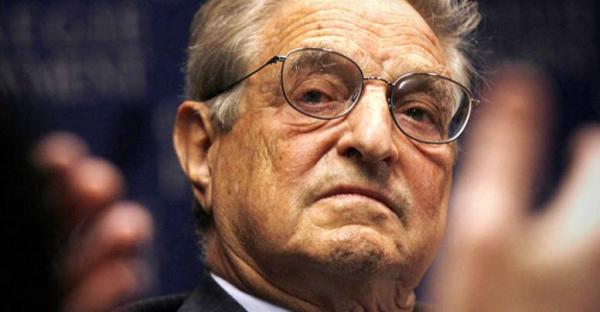
Why did the Clinton Foundation send a $37 million grant for the Clinton-Bush Haiti Fund in 2010 to a Baltimore post office box when the CBHF told federal tax authorities that its only office that year was in Washington, D.C.?
Ortel, writing for Lifezette, said he thinks Mueller and Rosenstein both know the answer to that question but are loathe to discuss it publicly.
But then, he notes, that’s par for the course when it comes to “official” Washington and any meaningful investigation “into obvious and rampant frauds” involving the Clinton Foundation and its principals, Bill, Hillary, and Chelsea Clinton. (Related: Will 2018 FINALLY be the year Bill and Hillary are BUSTED? This expert says yes and COMEY will be key)
That said, Ortel wrote that it’s still important, nevertheless, to track down such instances of charitable fraud. As for this particular case and the question he is asking, he cautions readers to “be prepared, because the answers also make clear that too many powerful people were and are covering up an odious set of scandals that implicate Establishment Republicans and Democrats alike.”
Ortel writes that fraud involving the Clintons dates back to Bill Clinton’s presidency, when — as head of the Executive Branch — he had the authority to prevent any prosecutions by the Justice Department against “the William J. Clinton Presidential Foundation,” an organization Ortel says “has never bothered to file a mandatory federal income tax return” for its first few months of operation, Oct. 23, 1997—Dec. 31, 1997.
As it became clear that Republican presidential nominee George W. Bush would become president following the recount chaos of the 2000 election, Clinton and others inside his orbit ensured “that allies would occupy key roles inside the IRS, DOJ, and elsewhere in the federal Establishment,” he wrote.
It is at this point that three people we’re all familiar with today come into play — Rosenstein, Mueller, and former FBI Director James Comey:
— From 2001-2005, Rosenstein served as Principal Deputy Assistant Attorney General for the Tax Division of the Justice Department, according to his official biography. His duties included supervising the division’s criminal sections and coordinating tax enforcement activities of the Tax Division, the IRS and U.S. attorneys. Records from the FBI vault indicate that grand juries were empaneled, the FBI and DoJ conducted investigations, and there were subpoenas issued — but never any indictments against the William J. Clinton Presidential Foundation, despite clear evidence of fraud, Ortel writes.
— Though heavily redacted, the FBI files clearly show that Comey had “leadership” roles during these “epic failures" and that Comey’s predecessor, then-FBI Director Mueller, “was personally aware of the course of these ineffective efforts after he assumed his duties in 2001,” Ortel notes.
He maintains there are numerous instances of fraud tied to the foundation, but somehow Rosenstein, Mueller, and Comey never found them. That’s because “you will never notice charity fraud when you refuse to look at key evidence” that includes phony audits that “ineffectively mask the brazen theft of at least $64 million,” the investigator notes.
Which leads back to Ortel’s original question: Why was the $37 million sent to a P.O. Box in Baltimore?
And of course, that question leads to others, like, who retrieved the check, and what happened to the money?
A thorough probe of all the relevant evidence led Ortel to believe that more than $37 million may have been sent to the post office box after May 2010.
“Claims by the Clinton Foundation concerning its supposed grant to CBHF do not and cannot be squared with CBHF findings,” he declared. “Someone here is lying and many people are doing their best to cover up with looks like crystal-clear evidence of charity fraud and other serious crimes.”
See more at Clinton.news.
J.D. Heyes is also editor-in-chief of The National Sentinel.
Sources include:
Please contact us for more information.























